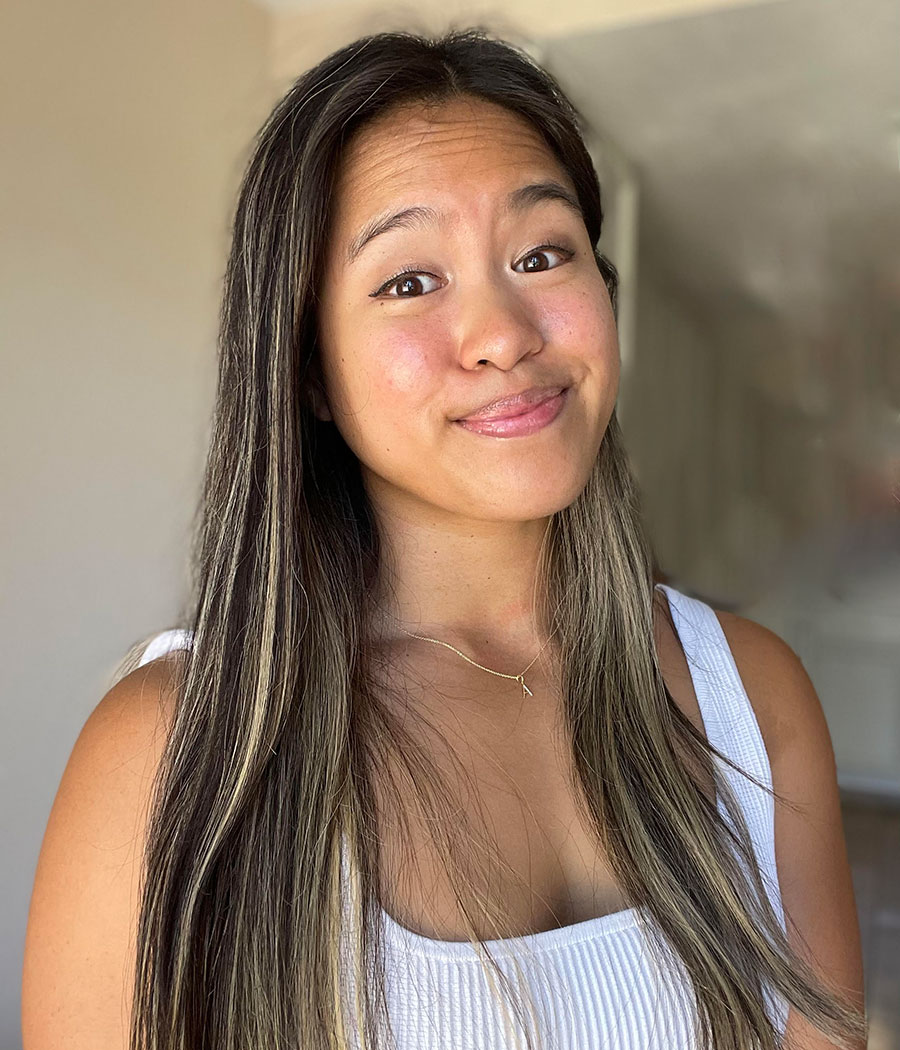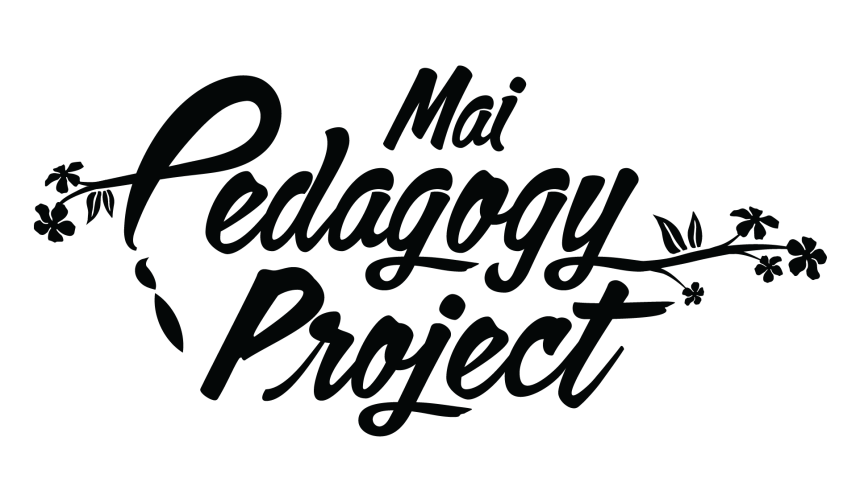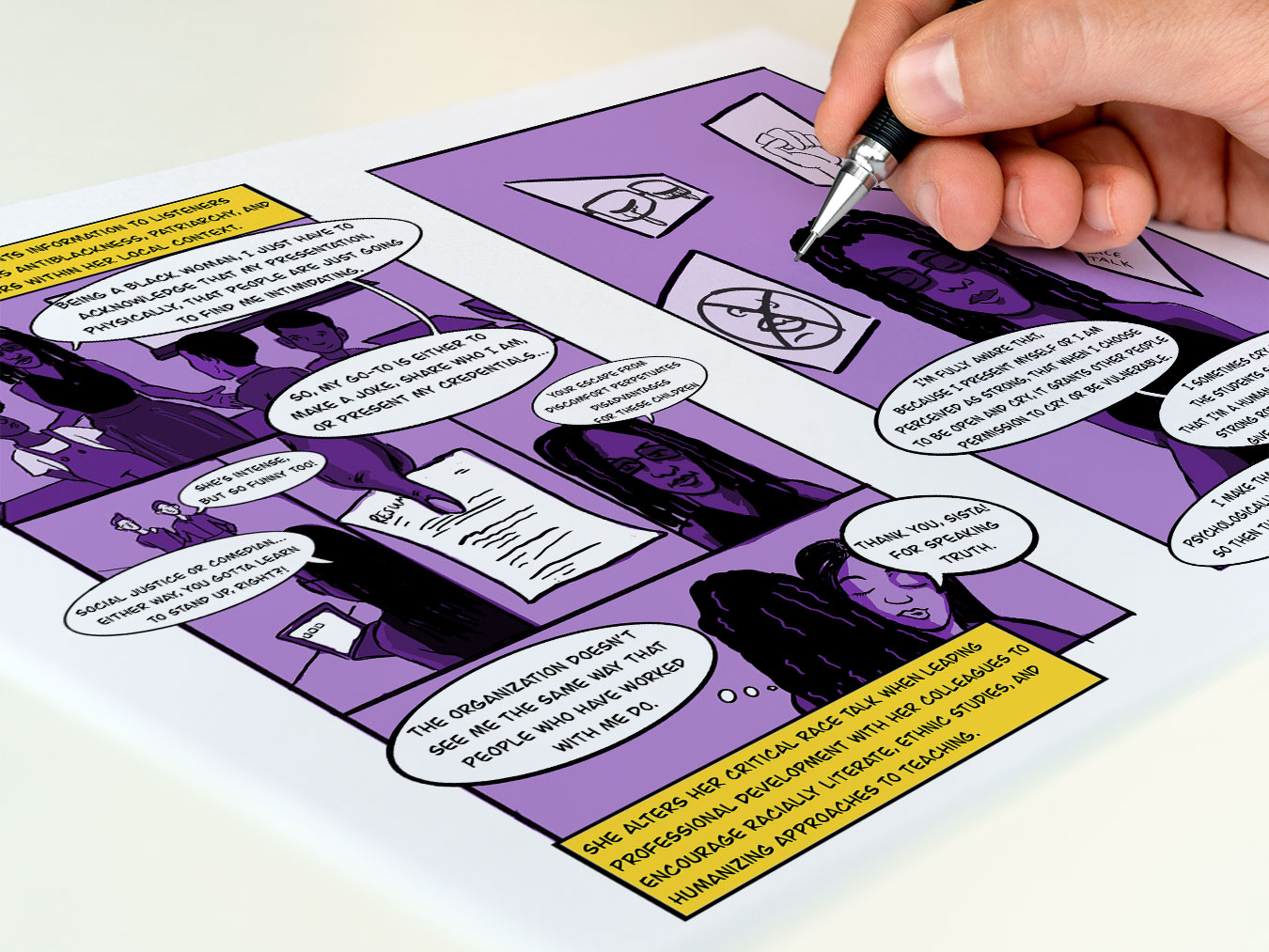Negotiating Institutional Constraints to Expand Racially Just Possibilities
Not withstanding systemic and societal barriers, teachers and students persist and see multiple opportunities for enacting a more racially just world in day-to-day classroom and school life. This comic showcases this innovative practice, referred to as “racial micropolitical literacy.”
Citation
Pham, J., & Trazo, T. A. (2025). “I’ll walk out if you walk out”: A comic on how students of color utilize racial micropolitical literacy in their everyday lives. Occasional Paper Series, (53). DOI: https://doi.org/10.58295/2375-3668.1546
This comic is part of a special issue published in Occasional Paper Series, co-edited by Ricardo Martinez and Ezequiel Aleman.
(2025). Speculative youth participatory action research: narratives of imaginative social dreaming. Occasional Paper Series, (53). DOI: https://doi.org/10.58295/2375-3668.1568
Check out and download the full version of the comic here and special issue here!

Angel Trazo
Angel Trazo
Angel Trazo (she/hers) is a PhD student in Cultural Studies at UC Davis. She is author of the children’s books We Are Inspiring: The Stories of 32 Asian American Women (2019) and Vanessa Unmuted (2021). Her comics and “visual notetaking” sketches have been published in academic journals such as ASAP Journal and Modern Language Studies. Her scholarship has been published in journals such as Intersections: Critical Issues in Education and Amerasia Journal. Angel’s current research is focused on Asian American youth cultures, specifically the Asian Baby Girl (ABG) subculture.
“I have been worried that students are losing their creativity, their energy, their excitement, because schooling kills it. I wanna keep pushing them to freedom, dream a world which is envisioned, a world in community without oppression, racism, sexism, homophobia, xenophobia, classes, and etc. Not just what we’re fighting to resist, but what we’re fighting for. I was able to use this resource to have students use graphic novels as a way to present stories about their own communities, and that whole thinking creative process is what really stuck with me… If someone’s like, you need to make your class more rigorous, I don’t know what else could be more rigorous than using more resources that’s based on a scholarly journal, a theoretical framework, and to create something from it that’s accessible and meaningful to students”
“For a lot of teachers who have grand visions of what it means to do justice work in the classroom, which may be tied to the savior complex, they might expect to see their students engage in these grand gestures of politics, going to protests, walkouts without realizing the tensions between the risks and resistance, all of these multiple images and dynamics of what it means to be political. Whose safety is on the line? I think there’s something that comics as a pedagogical resource offers… the slowing down, the questioning and the pauses, the eye contact, the facial expressions, the emotional reactions! This slows down a moment in a way that feels more real and tangible than what a traditional academic article can do… This gets to the interiority of this work in a powerful way, and parts of politics, resistance, and agency that teachers don’t always see or are in our purview. I’m definitely going to use this in my other classes.”
Share Your Experience
We are committed to offering our resources to educators, youth advocates, organizers, and community members at no cost. If you have used materials from Mai Pedagogy Project in any way, we would love to learn from you and your experiences to sustain our project and support our future work!
related projects







